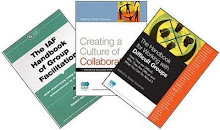Maybe Down is Up:
Connecting business and life for self-knowledge and growth
A Review of Failing My Way to Success, by Steve Lobel
You must learn from the mistakes of others. You can't possibly live long enough to make them all yourself.In Failing My Way to Success: Life Lessons of an Entrepreneur, Steve Lobel takes us on his emotional and financial rollercoaster of entrepreneurial risk, failure, and success. This is not a comprehensive survey of what you need to succeed in business or in life, nor is it a “how to” guide for business or career start-ups. Rather, it is a highly readable and engaging personal story that conveys powerful insights, not only for entrepreneurs but for anyone in the beginning or midst of their careers.
Throughout the book, the importance of connections is evident—connections to family, friends, customers, clients, employees, advisors, partners. Lobel’s self-conscious understanding of the importance of connection is revealed early in the book in his choice of the name for his fledgling gourmet cheese shop. He calls it “The Cheese Connection.” It was the small, basement-level shop that he grew into the region’s first—and fondly remembered—upscale food market in Stuyvesant Plaza, Cowan and Lobel.
Proving Something
Of the many connections woven throughout the book, a few are described in depth. For example, in the first few chapters he describes his close connection to his father. He describes how he gave up his high-school social life to work with his father on weekends, photographing weddings and Bar Mitzvahs. The importance of that connection surfaces again and again. Fully two thirds through the book he again reflects on his connection to his father. He explains part of his motivation to be an entrepreneur as “… proving something to myself—and, I suppose, to my father, always my father.” (p. 68.) Similarly, his connections to his wife, Vivian, and later, his business partner Dan Cowan, are case studies in what make personal connections succeed or fail.After describing his first-year struggles and triumphs with The Cheese Connection, he sums up, drawing an even bigger circle around the importance of interpersonal connections: “You can know a lot or you can know a little, but as long as you understand relationships, you have a leg up. You need to care about people’s likes, their desires, their fears, their needs. This is a big part of your personal and professional integrity, and to me integrity is everything.” (p. 33.)
What’s Real Success?
A different type of connection, one that gives title to the book, is the connection between success and failure. Failure in one venture provides lessons that lead to success in another. But it is not a simple failure-leads-to-success story. Much of the book shows how each experiment, success, and expansion, provided new failures, business insights, and self-knowledge. As Will Rogers (and others) have said, “Good judgment comes from experience, and experience comes from bad judgment.” Lobel’s words are perhaps not as clever, but deeper. “We may fail, but no one who learns from life’s mistakes can be considered a failure. … [T]he lessons of failure have made me kinder, wiser, more generous, more empathetic. This too is a definition of success. Maybe the best one.” (p. xi.)Lobel’s personal experience brings to life the importance of self-knowledge. He learns what he is good at, and what he is not good at. “I loved the ‘right brain’ parts of retailing, all the creative, challenging, and stimulating bits, but I’d never disciplined myself to do the ‘left brain’ labor, the dry, crucial, crunching of facts and figures. … I am a visionary, big-picture kind of thinker, and in those days my creativity and imagination sometimes ran far ahead of my judgment.” (pp. 46-48.) While his areas of marketing and customer relations certainly are “creative, challenging, and stimulating,” for some people, the same is true of “the crucial, crunching of facts and figures.”
Getting Help
For the things he is not good at, Lobel came to recognize the need to get help from others, albeit with some prodding. For example, given the insistence of his banker, he hired a bookkeeper. He drew his wife into the business because she “is practical, careful, detail oriented. … She possessed all the skills I lacked. She was stable, organized, level-headed—and tough.” (p. 48.)Lobel’s story shows how, relying on his own judgment and discounting the advice of others, his risk-taking sometimes paid off. At other times, it led to failure. How to make that choice—when to forge ahead and when to hold back—is not clear. However, Lobel does make clear the pitfalls of selfish need-fulfillment. As he admits, when risking his family’s financial security on a new business venture, “I was like a drug addict, craving the adrenaline fix of a new business. … I simply could not quit.” (pp. 70-73.)
That Lobel’s story ends well is a demonstration of his personal drive, ability to identify emerging trends and opportunities, and willingness to educate himself about subjects of which he had no previous knowledge or experience. Supporting his efforts at every stage are the interpersonal connections that sustain and enrich him. In the end, he finds greater meaning in life as a philanthropist and mentor and closes with the following wish. “May your failures point the way to your ultimate success. And may your success be the means by which you help repair the world.” (p. 101.)
Failing My Way to Success: Life Lessons of an Entrepreneur
By Steve Lobel 103 pp. F&S Publishing. $15.
failingmywaytosuccess.com
This review first appeared in The Jewish World, Vol. 51. No. 13, Feb. 18, 2016, pp. 3, 7.











